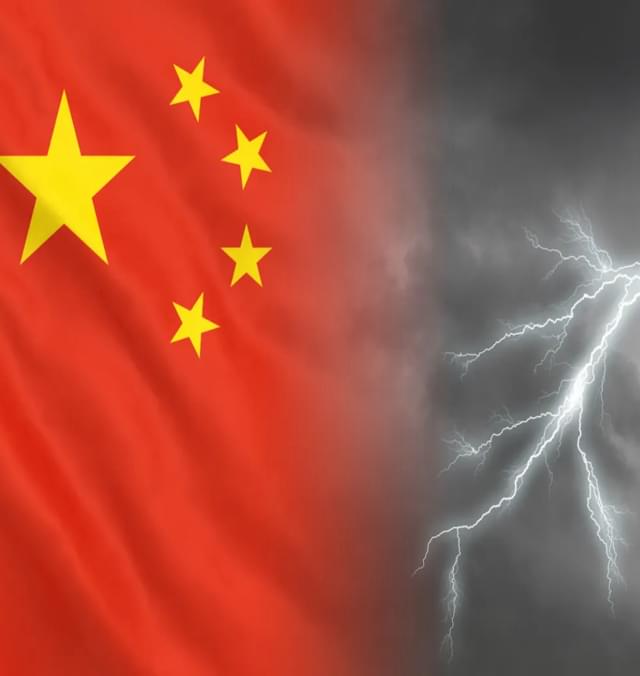Luxury Carmakers Face Headwinds In China: Beyond BMW And Porsche

Table of Contents
The Rise of Domestic Competition
The Chinese automotive industry is undergoing a rapid transformation, presenting formidable challenges to foreign luxury carmakers. This competition manifests in two key areas: the electric vehicle (EV) revolution and the growing preference for domestic brands.
Electric Vehicle (EV) Revolution
Chinese EV brands are not just competing; they are aggressively disrupting the luxury car market. They offer compelling alternatives to established players, leveraging sophisticated technology and competitive pricing.
- Successful Chinese EV Brands: Nio, Xpeng, and BYD (with its higher-end models like the Han and Tang) are leading this charge, attracting luxury buyers with their advanced features and stylish designs.
- Technological Advancements: Chinese EVs are increasingly showcasing superior technology, including advanced battery technology, autonomous driving features, and innovative infotainment systems, often exceeding those offered by some traditional luxury brands.
- Price Competitiveness: Many Chinese EV brands offer comparable features and performance at a lower price point than established luxury carmakers, making them a highly attractive option for price-sensitive luxury buyers.
Growing Nationalism and Brand Preference
A surge in national pride is boosting the appeal of domestic brands. This shift in consumer sentiment significantly impacts the sales of foreign luxury carmakers.
- National Pride: Chinese consumers increasingly see purchasing a domestically produced luxury vehicle as a way to support the nation's economic growth and technological advancement.
- Targeted Marketing: Chinese brands effectively leverage national sentiment in their marketing campaigns, emphasizing the "Made in China" aspect and associating their vehicles with national pride.
- Government Support: Government policies favoring domestic automakers, including subsidies and preferential treatment, further strengthen the competitiveness of Chinese brands.
Economic Slowdown and Shifting Consumer Spending
The Chinese economy, while still growing, is facing headwinds. This economic slowdown has a direct impact on consumer spending, particularly in the luxury segment.
Economic Uncertainty
Economic uncertainty is directly influencing consumer confidence and discretionary spending on luxury goods.
- Economic Indicators and Sales: A clear correlation exists between key economic indicators like GDP growth, inflation rates, and consumer confidence levels, and the sales figures of luxury cars in China.
- Inflation and Interest Rates: Rising inflation and interest rates make luxury car purchases more expensive and less accessible to consumers, impacting demand.
- Changing Demographics: Shifting demographics and evolving consumer behavior are also factors, with younger generations often prioritizing experiences over material possessions.
Evolving Consumer Preferences
The definition of luxury is changing in China. Consumers are increasingly discerning, seeking unique experiences and personalized value propositions.
- Personalization: Customization options and personalized services are becoming crucial differentiators for luxury carmakers in China.
- Sustainability: The demand for sustainable and eco-friendly luxury vehicles is growing rapidly, driven by increasing environmental awareness among affluent consumers.
- Digital Engagement: Reaching the digitally savvy Chinese luxury consumer requires a strong online presence and effective digital marketing strategies.
Supply Chain Disruptions and Geopolitical Factors
External factors further complicate the landscape for luxury carmakers in China. These include persistent supply chain disruptions and rising geopolitical tensions.
Global Supply Chain Issues
Global supply chain disruptions significantly impact the availability of luxury vehicles in China.
- Chip Shortages: The ongoing semiconductor chip shortage continues to constrain production and delivery times for many luxury car brands.
- Logistical Challenges: Shipping delays and increased transportation costs add to the challenges of getting vehicles to the Chinese market.
- Risk Mitigation: Luxury carmakers need to implement robust strategies to mitigate supply chain risks and ensure a consistent supply of vehicles.
Geopolitical Tensions
Geopolitical tensions between China and other nations create uncertainty and can directly affect the luxury car market.
- Trade Wars and Sanctions: Trade wars and sanctions can lead to higher import tariffs and hinder the import of luxury vehicles.
- Political Stability: Political stability and international relations significantly influence consumer confidence and spending on luxury goods.
- Geopolitical Risk Management: Luxury carmakers must develop strategies to manage geopolitical risks and navigate the complex political landscape in China.
Conclusion
The Chinese luxury car market is undergoing a period of rapid and transformative change. Domestic competition, economic shifts, evolving consumer preferences, and geopolitical factors create a complex and dynamic environment. Established luxury carmakers face significant challenges in maintaining their market share. Understanding these headwinds is critical for navigating this complex market successfully. Further research into the evolving dynamics of luxury carmakers in China is essential for developing effective long-term strategies. Stay informed on the latest trends to successfully navigate this challenging yet potentially rewarding market.

Featured Posts
-
 The China Markets Shifting Sands Challenges For Bmw Porsche And Others
May 13, 2025
The China Markets Shifting Sands Challenges For Bmw Porsche And Others
May 13, 2025 -
 Spatial Concepts In Fine Arts A Professorship Opportunity
May 13, 2025
Spatial Concepts In Fine Arts A Professorship Opportunity
May 13, 2025 -
 Doom The Dark Ages Release Time When Can You Play
May 13, 2025
Doom The Dark Ages Release Time When Can You Play
May 13, 2025 -
 Cubs Vs Dodgers 2 05 Ct Lineups Broadcast Info And Game Thread
May 13, 2025
Cubs Vs Dodgers 2 05 Ct Lineups Broadcast Info And Game Thread
May 13, 2025 -
 Herthas Decline The Boateng Kruse Public Dispute
May 13, 2025
Herthas Decline The Boateng Kruse Public Dispute
May 13, 2025
